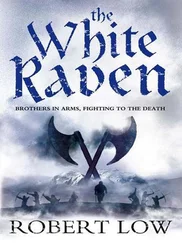Robert Walker - Shadows in the White City
Здесь есть возможность читать онлайн «Robert Walker - Shadows in the White City» весь текст электронной книги совершенно бесплатно (целиком полную версию без сокращений). В некоторых случаях можно слушать аудио, скачать через торрент в формате fb2 и присутствует краткое содержание. Год выпуска: 0101, Издательство: HarperCollins, Жанр: Исторический детектив, на английском языке. Описание произведения, (предисловие) а так же отзывы посетителей доступны на портале библиотеки ЛибКат.
- Название:Shadows in the White City
- Автор:
- Издательство:HarperCollins
- Жанр:
- Год:0101
- ISBN:нет данных
- Рейтинг книги:3 / 5. Голосов: 1
-
Избранное:Добавить в избранное
- Отзывы:
-
Ваша оценка:
- 60
- 1
- 2
- 3
- 4
- 5
Shadows in the White City: краткое содержание, описание и аннотация
Предлагаем к чтению аннотацию, описание, краткое содержание или предисловие (зависит от того, что написал сам автор книги «Shadows in the White City»). Если вы не нашли необходимую информацию о книге — напишите в комментариях, мы постараемся отыскать её.
Shadows in the White City — читать онлайн бесплатно полную книгу (весь текст) целиком
Ниже представлен текст книги, разбитый по страницам. Система сохранения места последней прочитанной страницы, позволяет с удобством читать онлайн бесплатно книгу «Shadows in the White City», без необходимости каждый раз заново искать на чём Вы остановились. Поставьте закладку, и сможете в любой момент перейти на страницу, на которой закончили чтение.
Интервал:
Закладка:
Gabby quietly agreed, as she’d been disturbed to her core. “Yes, and we just got a glimpse into their secret stories and guarded knowledge.”
“Knowledge or ignorance?” asked Alastair.
“For them this is knowledge and knowledge is survival,” countered Jane. “They graced us with information they do not commonly share with adults, not their parents for certain, nor the shelter people, or the priests.”
Sniffling, Gabby added, “We were privileged, “thanks to Audra paving our way. They don’t share, for fear of being ridiculed-or beaten for blasphemy.”
Jane sighed heavily. “Heartbreaking, their account of an exiled God unable or unwilling to respond to human pleas even as His angels wage war with Hell.”
Alastair nodded. “Must be-to shelter children-a plausible explanation for having no safe place, no home.”
The carriage bumped along streets in serious need of repair, the landscape of urban distress the other side of the window sash.
“Their stories have the dual purpose of engaging them in something larger than themselves,” added Jane, “and in making their lives meaningful-the purpose of any religion. An astute phrenologist and student of the mind could do a lot with these children, but it would take an army of us.”
“An astute folklorist could do even more,” countered Gabby.
“How so?” asked Jane, holding back her tears.
“A folklorist…could see traces of old legends in the new ones spawned by Chicago’s shelter children.”
Alastair silently wondered what the hell a folklorist might be.
“For example, Yemana, a Santería ocean goddess, resembles the Blue Lady; she is compassionate and robed in blue, though she is portrayed with white or tan skin in her worshippers’s shrines. And for how many generations have we heard of a disease-carrying Bloody Mary going about humanity?”
“Every group has to have its revenants, spirits, and ghosts,” Jane said.
“Yes, of course, Celtic tales of revenants,” began Alastair, chewing on an unlit pipe, “vampiric zombies digging their bloodless bodies from graves, returning souls, visitors from the land of the dead sent to console or warn, harm, or help? Trust me, they all arrived in America centuries ago with the first Native American.”
Jane stared for a moment. “Mock all you like, but it makes perfect sense to these children. It’s all they have to hold onto. It perpetuates itself through their leaders.”
“It’s still all a matter of shoveling outrageous bullshit .”
“No it’s a pseudo-religion based on religious archetypes. And while you may disagree with their version of reality, Alastair, you have to remember our reality is an absolute three-hundred-sixty degrees from theirs.”
“Theirs born of pain and experiences we can’t conceive of,” agreed Gabby.
“True, born of a fear that is as deep a wound in the mind as any I have ever encountered,” Jane said, sighing. “So they make myths.”
“Yes, so they make myths out of earlier myths that influence this…this shelter folklore,” muttered Ransom.
“The frightful and bizarre stories of these homeless children are certainly unique and foreign to our ears, most assuredly,” Gabby continued, deeply moved. “But they also have a validity, and you’re right, Inspector. They resonate with the myths of African tribes, Asian tribes, Afghanistan tribes, hell…all the tribes.”
Jane hugged her daughter to her. “It’s the certainty and detail that gets to me.”
“What about the predator-Leather Apron-the one we’re after?” Alastair asked Jane point-blank. “How does he figure into this war of angels?”
“How do we know there is a connection, Alastair? What instinct are we drawing on? Ask yourself!”
“Just an old-fashioned cop’s hunch, Jane. Nothing supernatural about it, nothing extraordinary…just a gut feeling.”
“You and I acted on our belief system, given our experience, given our myths. Isn’t it the same as the popular mind immediately pointing a finger at the knacker and the butcher?”
The carriage pulled up before the sign outside Jane’s place, the sign that read Dr. James Phineas Tewes.
Staring at the sign as the ladies disembarked, Alastair replied, “I suppose we all create our own myths, just as Dr. Tewes has done.”
“Phrenology may strike you as a myth or pseudoscience, Alastair, but Dr. Tewes is able to get people into his practice on that mythology, and once in his chair, he can diagnose a real medical problem.”
“Too bad helping those homeless children can’t be as simple, heh?” As his carriage pulled away, Alastair waved mother and daughter off, going for Philo’s place on Kingsbury. He needed a safe place where he could just relax, listen to music, have a drink, and feel confident that he did not have to pay too close attention to reason or to entertain reality. This day had been filled, perhaps, with too much reality, despite the mythology.
“That man can be so infuriating at times,” Jane said of Ransom as she got on the phone.
“Who’re you calling, Mother?”
“Shhh…it’s ringing.”
Dr. Jane Francis put in a call to a very dear friend, the indefatigable Jane Addams, the founder of Hull House and the settlement movement in the city, a woman who’d devoted her life to helping overburdened women and children.
Jane related what she and Gabby had just gone through. Jane Addams listened attentively and took in every word with an occasional yes, an uh-uh, uh-huh here, a groan there.
“Can you give us any advice on how to help this girl, Audra?”
By this time, Gabby hung on her mother’s every word, craning to hear Addams’s reply. It came immediately.
“According to the city and county people I have fights with every day, Dr. Francis,” Jane Addams began in a calm, motherly tone, “the very people whose job it is to keep track of numbers of indigent and homeless families, nearly two thousand homeless children are currently bounced like rubber balls between the privately run, and publicly run, and the overrun shelters and welfare agencies and the streets. Your concern for one of these two thousand is touching, but I really must be getting back to my duties here. I have several hundred of those two thousand clamoring for another meal, and I have a ward filled with sick ones. So…I wish you luck with finding Audra again and perhaps adopting her.”
“The chances of me adopting are zero, Jane, and you know it.”
“ Ahhh , yes, a single woman. Another reason why your Gabby is right, and you are wrong about the suffragette movement. Do you know that any single man may adopt a child and turn him or her into his personal slave? Putting boys to work in his fields, putting girls to work in his kitchen, and all too often other rooms in the house?”
Jane Addams hung up.
Jane Francis reconsidered all that Alastair had to say on the subject; Gabby tearfully sought out her bedroom, her doll in hand, breaking down.
Jane went to Gabby with the express purpose of consoling her, but she stopped at her daughter’s door. She realized she could do nothing for her, that her young one must deal with this in her own time. Jane turned and went to find her own privacy and a bit of comfort in a hot cup of tea. Somewhere in the back of her mind she wondered if reading tea leaves could help a mother at such a time as this. She so hoped and prayed for Gabby’s future. Séances, spiritualism, phrenology, magnetic healing but not tea leaves, not yet anyway, she thought. But if I thought it could help Gabby…
CHAPTER 12
Dr. Jane Francis had fully recovered and had even managed to help with the cooking tonight. She now looked across the dinner table at her daughter, Gabrielle, whose sullen and somber mood over Audra and the other street children had only deepened. She barely touched her meal, and the mother in Dr. Francis could not help mentally comparing her daughter’s sheltered life to that of the homeless children of the streets, unable to do otherwise.
Читать дальшеИнтервал:
Закладка:
Похожие книги на «Shadows in the White City»
Представляем Вашему вниманию похожие книги на «Shadows in the White City» списком для выбора. Мы отобрали схожую по названию и смыслу литературу в надежде предоставить читателям больше вариантов отыскать новые, интересные, ещё непрочитанные произведения.
Обсуждение, отзывы о книге «Shadows in the White City» и просто собственные мнения читателей. Оставьте ваши комментарии, напишите, что Вы думаете о произведении, его смысле или главных героях. Укажите что конкретно понравилось, а что нет, и почему Вы так считаете.











